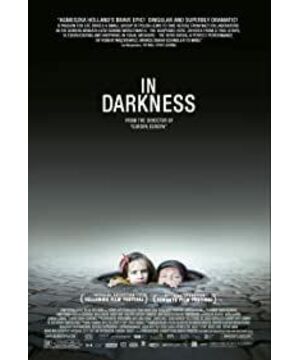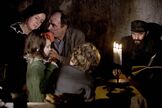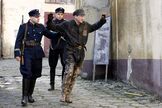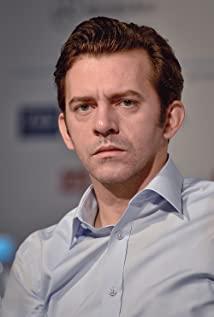There is Mazuka, and there is a girl who pulls her golden hair behind her ears and dances with her skirt feet in rhythm. There is a nocturne and a pale sadness who can only become clear when her ten fingers touch the black and white keys. Polka also has a young man who leaps to his sweetheart and sings of love while playing the accordion.
Music, love, dance, life, these are what Poland has.
These are all that Poland has.
As a country that has been invaded many times by three divisions, and even in many periods, different regions have different official languages. People living in it have chosen to maintain each other in a speechless but broader way than language—music. This is speechless communication, speechless catharsis, speechless talk, speechless resistance. When the flames of war silence everyone, death makes all speech pale, music, only music, still flows in the air and blood of this country.
This makes most Polish or related films contain music, more or less, and the more depressing the film, the more brilliant the music. The violin in Auschwitz in "Schindler's List", Chopin in the attic in "The Pianist", and the piano played in the sewers in "Days with Clouds" all become the last of the people's repression in the film. exit.
It's just that in this film, even music is fatal.
"We are underground, and we can hear the voices above the ground clearly, and in the same way, our voices can also be heard on the ground. Once we are heard, we will die." The
story comes from a group of Polish Jews trying to escape the quarantine And a secret road leading to the sewer was dug through. It didn't take long for the ecstatic Jews to find that their behavior happened to be hit by two Polish plumbers. In desperation, they started a deal: the Jews exchanged money for their hiding place in the sewer pipe. So, in the midst of bargaining, the story began.
Germans, Poles, and Polish Jews appear one by one in the film. Throughout the film, the director's perspective is almost flat, sweeping across these three types of people equally-although there will be a bias towards Poles, in general, it is fair. The Germans are bloody and cruel, but they emphasize efficiency and compatriots, united as one; the Poles cheat the Polish Jews but value the family and sympathize with those who have the same family concept; the Jews must compete with each other but are struck by disaster Timely tenacity, forbearance, and courage to fight hard at the right time.
But these are not the main points of the story.
The film seems to be translated into "The Jews of Socha" in some places, keeping the format faithfully in line with "Schindler's List", and in some places it will be translated into "Darkness Pervades", in terms of atmosphere It is consistent with "Wenecja" (Wenecja), but it seems to be the most appropriate name directly translated by Google-"In the Dark" (W ciemności). Because this film is not like "Schindler's List", which tells how a person's mentality changes and finally abandons his wealth to save the Jews, nor is it intertwined with light and dark like "Days in Clouds". The protagonist Socha did not turn to sympathize with the Jews after seeing the German brutality, nor did he experience the conflict and division between the hatred of Russia or Germany, which moved him, shocked him, and eventually became him in the whole. During the Dark War, the spiritual pillar was the group of Jews, whose Jews had never given up their thirst for life and life.
He heard the Jewish girl’s singing while delivering food and necessities to the Jews. He saw the adults quietly listening to her. After singing, he was tired but gently kissing and complimenting the girl. For the first time, he showed this when handing out food. Some cramped respect; he involuntarily helped out when he saw a Jewish youth planning to risk entering a concentration camp for the girl he loved to find out the whereabouts of her relatives; he despised one of the Jews who tempted another husband and was eventually abandoned by the wife and son The man turned his back on the woman, but after seeing the woman crazily convinced that the man who deserted him was still alive and even gave birth to his child desperately, he discussed with his wife about adopting the baby. From the beginning of his contempt, hostility, calculation, and disdain for Jews, then he took his own life and rushed into the flooded sewer to lead off the Polish police who worked for the Germans; from the beginning, his wife was persuaded that "Jews are also human." In the end, ignoring the daughter's coming-of-age ceremony, he had to rescue the Jews and almost lost their wives. Socha's feelings for the group of Jews were more than just sympathy. When the German army finally withdrew from Poland and he brought the survivors who had been buried underground for more than two years to the ground, he ignored the surprises of the onlookers, and happily handed out the cakes while proclaiming in a loud, almost ostentatious manner:
"Look. They are my Jews! They are my masterpieces!"
In the darkness, in the darkness. In those two years or so, when the Jews lived in darkness, wouldn't the people on the earth be the same?
Prices are skyrocketing, the German army is brutal, and everyone is in danger. But the Jews in the sewer gave Socha the goal and motivation to live. I am no longer a person, a family; if they can continue to support, why can't I; they are still alive.
In the dark sewer pipe, Socha climbed over the tortuous pipe with the desperate girl who couldn't eat, and opened a manhole cover. Holding the girl in his arms, he forcefully lifted the girl's head off the ground:
"Inhale. Inhale hard."
Because of the long absence of sunlight, the girl's vision is blurred, except for the bright halo. I can see it too clearly, but the air smells of freshly baked bread, the smell of moist pebble streets that have just been swept over, and the smell of feathers on pigeons walking by. More importantly, the air is circulated, fresh, and has a free taste.
After many times, when Socha ventured to send underground Jews to the ground, the first sentence was always: "Inhale, inhale hard." This sentence is for those Jews, and perhaps even more for himself. Life may be difficult, life may be difficult, especially in the dark. But the meaning of being alive is in the final analysis just between one breath and one breath.
Breathe hard and look up, even in the dark.
Because the light is there.
View more about In Darkness reviews











